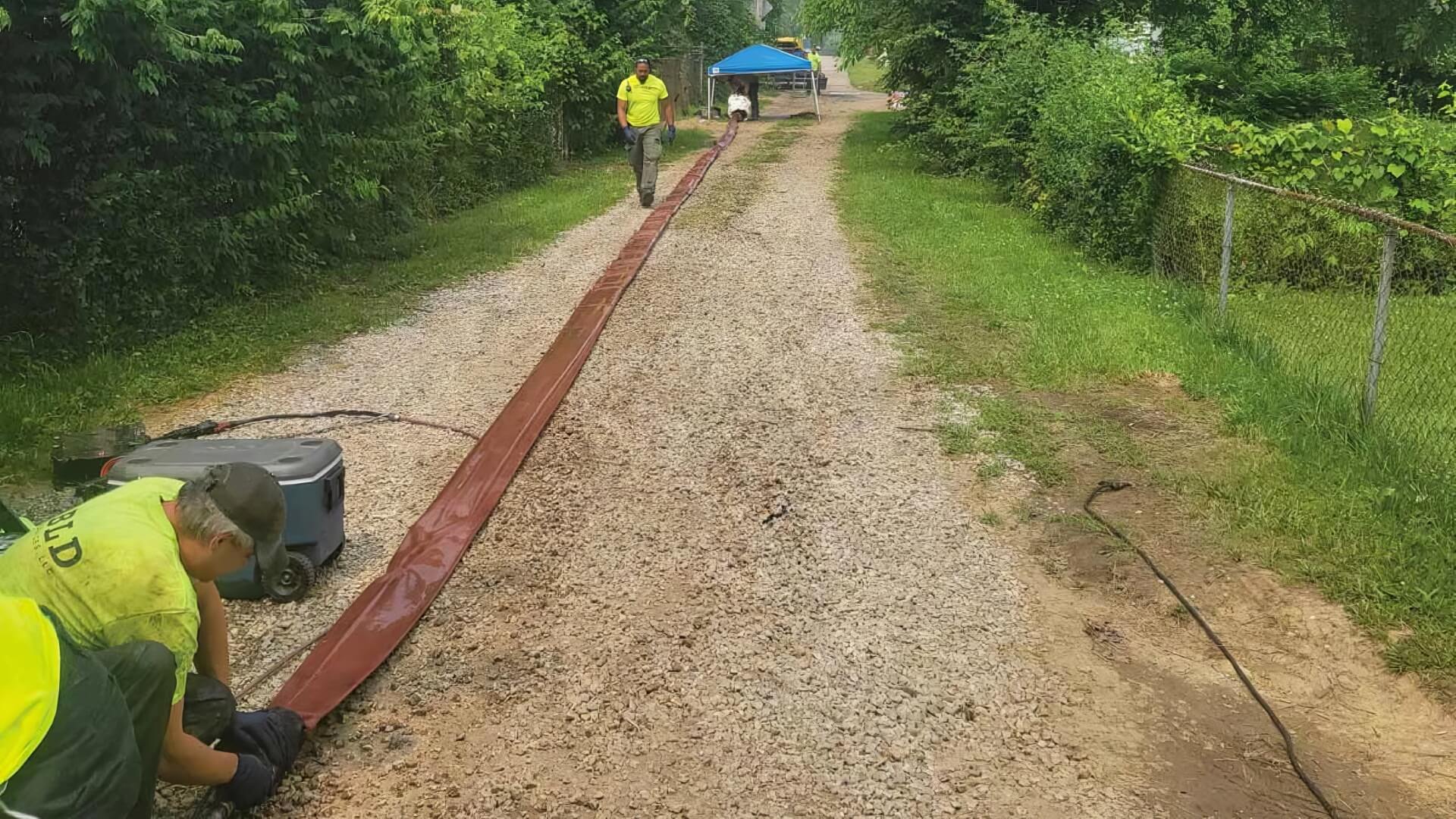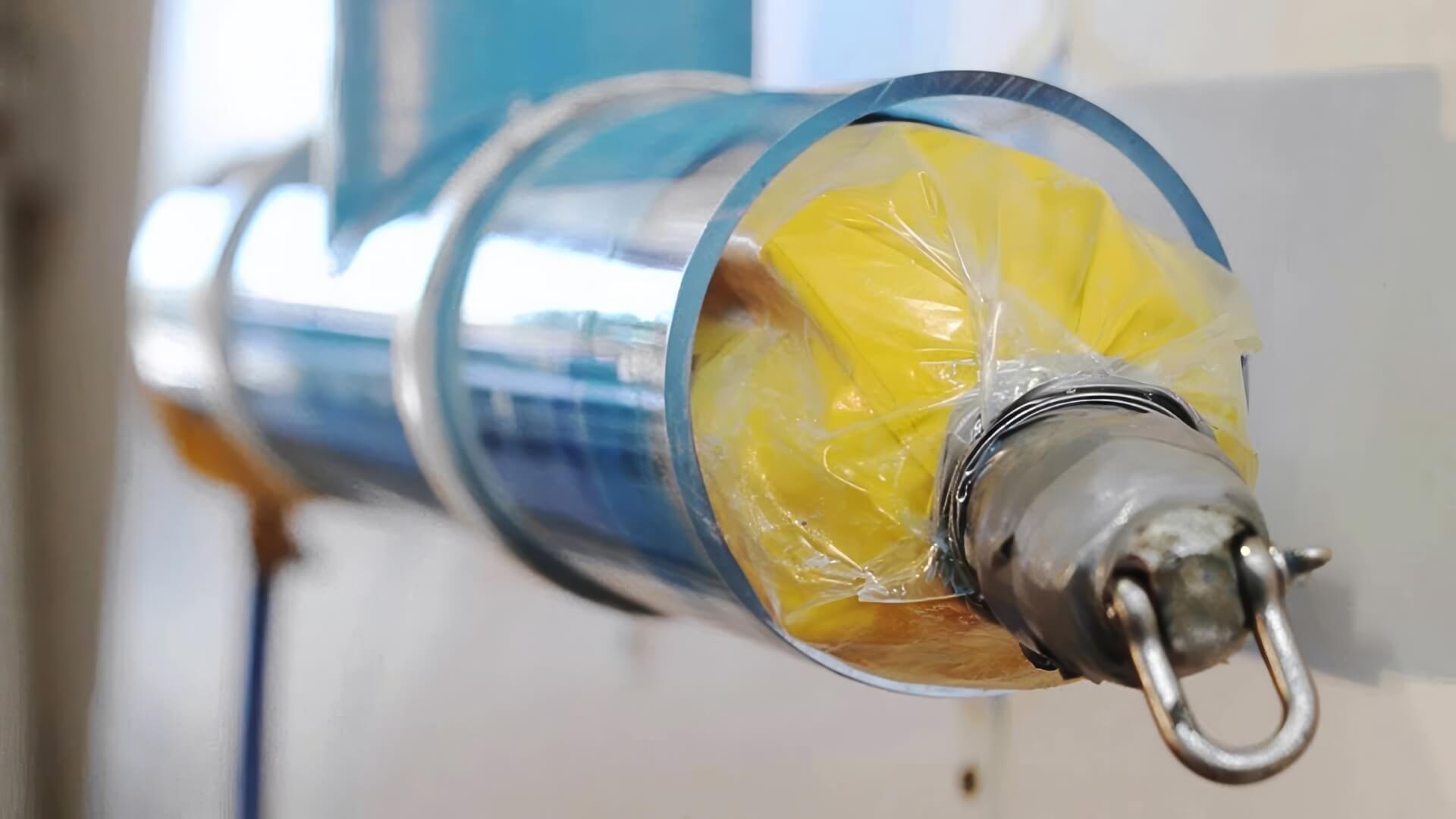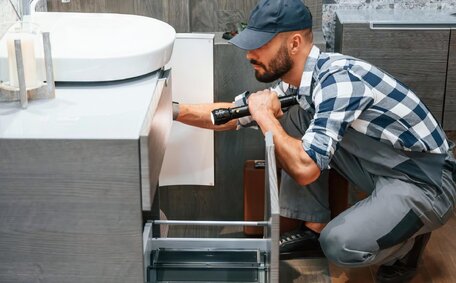Introduction to Pipe Relining for Pool Leaks
Our relining system offers a practical, no-dig solution for repairing swimming pool pipework, preserving your landscaped garden. This method involves inserting an epoxy resin liner into the damaged host pipe, minimally disrupting your property’s aesthetic and functionality. As the epoxy cures, it seals cracks and holes, stopping leaks.
This technique, ideal for PVC pipe repairs, maintains the flow of water by addressing hairline fractures, loose joints, root intrusion, and minor holes in your pool’s plumbing infrastructure, fortifying the pipe without major excavation. It restores structural stability and water flow with minimal mess and disruption to your pool and garden.
Our expert analysis highlighted the advantages of pipe relining for drain pipes, drawing particular attention to its cost effective nature, swift repair times, and minimal impact on your garden’s aesthetic. We will cover the suitability and limitations of our relining services, and outline the process from inspection to completion.
What Causes Pipes to Leak in Swimming Pools
There are several common reasons that lead to leaks in pool pipes:
Tree Root Intrusion
Tree roots seeking water can exert pressure on pipes and potentially cause damage. Pipe relining is adept at repairing such root-induced issues without the need for excavation. PVC pipes, which become more fragile over time, can also succumb to damage with less external force.
Ground Movement
Shifting or unstable soil, owing to conditions like droughts or floods, can adversely affect the pipes under swimming pools. Such soil shifts can strain the water pipes beneath your pool, leading to leaks at weak points or joints.
Pipe Corrosion
The chemicals often used to maintain pool spa and hot water pools can lead to a pool plumbing leak, contributing to corrosion after years of battling sewer storm water infiltration. Chemicals accelerate internal pipe degradation. Suction side leaks often emerge alongside pressure side issues within the plumbing system, especially at points weakened by corrosion or storm water inflow like elbow joints or tees.
Pipe Age & Wear
Pipes naturally deteriorate with age, and decades of exposure to water pressure and temperature shifts can cause the material to crack, typically at stress points like joints.
Regardless of the cause, pipe relining offers a cost-effective repair solution for broken pipes that avoids the hefty expense incurred with traditional pipe replacement.
How to Detect Leaks in Pool Pipes
Detecting a leak in pool pipes can be challenging, but there are a few techniques homeowners and professionals use:
Visual Inspection
A meticulous inspection of all above-ground pipework, joints, valves, and fittings is crucial, particularly in identifying places where cutting out and replacing compromised sections may be necessary. Leaks can be minuscule; thus, close inspection is essential to ensure no issues are overlooked, effectively eliminating guesswork.
Dye Testing
For precise detection, introducing a special dye into the pool system is advised, followed by using a UV light to inspect joints and connections; the dye will glow if a leak is present.
Pressure Testing
Isolate sections of pipework and subject them to pressure above regular operation. Declines in pressure are definitive signs pinpointing where leak issues persist. Professionals use specialised digital gauges for accuracy.
Thermal Imaging
An infrared camera or drain camera can detect subtle temperature differences that often suggest water loss, pinpointing leaks by contrasting ambient pipe temperatures with surrounding water. This requirement is standard for professional leak detection when assessing drain pipe issues for best results.
Moisture Metres
Our techniques with specialised tools and materials are effective for sewer pipes inspections, including those composed of PVC and concrete, to identify areas affected by leaks through sub-surface moisture detection.
If a leak is suspected but unconfirmed, call us today for a thorough professional electrical plumbing inspection. Trained plumbers possess the expertise and technology to precisely pinpoint the location of pool pipe leaks.
Evaluating If Pipe Relining Can Fix Your Pool Leak
Upon diagnosing a leak in your pool’s plumbing, deciding whether pipe relining serves as the appropriate sewer repair method is critical. An experienced plumber will conduct a meticulous inspection, employing leak detection tools like pressure testing and cameras to assess the leak’s location and the full extent damage.
In many situations, pipe lining can effectively target leaks in your existing pool pipes, provided that the host pipe has the necessary structural integrity to support the epoxy resin. Pipe relining can used repair issues such as:
- Hairline cracks
- Small perforations
- Loose joints
- Localised damage from tree roots
Relining efficiently seals leaks from within, rejuvenating pipes with a lasting repair. The smooth epoxy barrier also deters future root intrusion, all without leaving a mess.
Yet, pipes that are collapsed, severely corroded, or displaced might be irreparable. Pipe relining spares your landscape from extensive disfigurement, requiring only minimal access points to introduce the necessary equipment. Consultation with a reputable plumber is recommended to decide if pipe relining is feasible, given your pipe’s condition, the leak’s severity, and potential access challenges.
The Pipe Relining Process Step-By-Step
Relining pool pipes is a streamlined, no-dig procedure that reinstates water flow and halts leaks, safeguarding your backyard. Here is the process step-by-step:
- Inspection & Access - The plumber inspects all pipework with leak detection tools, then identifies access points to feed the epoxy liner into the damaged pipe.
- Surface Prep & Cleaning - The pipe interior is scoured clean using a powerful water jet to ensure the resin can be seamlessly inserted into the pipe. Protrusions are ground smooth to facilitate the liner’s snug fit within the pipe.
- Resin Insertion - A structural, fibre-reinforced epoxy resin liner is saturated then fed through the access point into the pipe. An inflatable bladder pushes the resin through pipe into its precise position.
- Curing & Setting - The epoxy liner self-adheres and cures rapidly to form a smooth, seamless new pipe wall within the damaged pipe. Curing time depends on pipe size.
- End Seals & Reconnections - Excess resin is trimmed flush. The liner is sealed at access points and side connections reinstated.
- Testing & Completion - Ultimately, pressure tests are conducted to rigorously test see if any leaks persist. The pipework is then reconnected for normal pool operation.
The pipe relining process takes just one day, ensuring minimal disruption and restoring the flow water to your daily routine. It extends the lifespan of pool pipes for decades, showing up when traditional replacements fall short.
Considerations for Pipe Relining vs Replacement
When pipes around pools leak, homeowners face the decision between pipe relining and full replacement. Considerations include:
Cost
Pipe relining costs between $70-100 per metre, notably more affordable than full replacement, which can be $200-250 per metre. For extensive pipework, relining can result in substantial savings, as it obviates the restoration costs associated with landscaping after excavation.
Time
Our relining is completed swiftly with same day service, preventing garden damage from extensive digging. Replacement can be considerably more time-consuming, taking up to a week per pool, with the potential for swim spaces to be out of action for months, especially if retiling is required.
Landscape Preservation
The non-intrusive trenchless relining ensures that your pool deck and nearby features remain untouched. This approach ensures your garden’s lush landscaping remains unblemished.
Longevity
Relined pipes are durable, lasting over 30 years. Although new pipework can last slightly longer, the cost savings make relining a prudent investment.
For cast iron or other pipes with isolated problems, lining your internal plumbing is a tactful strategy that prevents further damage while curbing expenses and pool downtime. When replacement is the only option due to structurally compromised pipes, our experts can assist with a smooth transition.
Enlist professional insight to carry out an examination of your plumbing and suggest the most appropriate leak repair jobs tailored to your specific situation.
When to Call a Professional Plumber
Homeowners can relax knowing professional plumbing help is available. While minor leaks may be DIY fixable, complex pipe issues, especially around pools, require licensed professionals.
Signs it’s essential to call a professional Padstow Plumbing plumber include:
- You’ve attempted repairs but the leak persists or returns
- The leak source is difficult to isolate even after comprehensive checks
- There are multiple breach points in pipework making individual repair impractical
- Pipes show severe corrosion, cracks wider than 2mm, displacement or are otherwise structurally unsound
- The leak is rapidly worsening, indicated by expanding moisture, sinking soil or increased water bills
Our licensed Padstow Plumbing technicians specialize in pool leak detection to accurately identify the root cause and best solution, be it pipe relining or replacement. We utilise advanced detection equipment to pinpoint problem areas precisely with minimal disruption to pools, paving or landscaping.
For complex pipe issues or if DIY attempts haven’t stopped your swimming pool leak, reach out, and our team at Padstow Plumbing on 1300 349 338 will provide assistance. You’ll want to use them again thanks to our readiness to help 24/7.
What to Expect From Pipe Relining Service
When you engage Padstow Plumbing for swimming pool pipe relining, you can expect an expert, efficient service focused on minimising disruption to your pool and property.
Our process commences with a thorough inspection, carried out using our CCTV technology for leak detection and pool wall examinations. We combine visual checks with advanced tools like pressure testing, thermal imaging cameras and pipe scanners as needed to pinpoint all leak locations precisely.
After identifying the damage, we’ll assess if relining, using an advanced method, is the optimal solution for your plumbing concerns. We advise on all repair options to help you make an informed choice.
For pipe relining, we start by cleaning the pipe interior so epoxy resin adheres correctly. We then saturate the liner with resin and insert it through access points to span the damaged section/s.
An inflatable bladder ensures the liner adheres to pipe walls as the resin quickly cures, sealing the interior cracks and holes.
The process takes just one day with minimal digging or jackhammering. We trim and seal the ends neatly to minimise external disruption. Any wall or floor surfaces affected during access works are reinstated back to original condition.
On completion, pressure tests confirm pipes are restored to leak-free integrity. We flush and reconnect pipework for normal pool function, tidying the area thoroughly.
We provide excellent service, underpinned by a substantial year guarantee on our expert pipe relining, ensuring lasting quality and durability. Ongoing maintenance is minimal but helps optimise longevity. Avoid planting new trees/shrubs near pipes and contact us if you notice damp patches, new leaks or pressure drops.
Find out more information and trusted expertise on swimming pool plumbing repairs, give us call at Padstow Plumbing on 1300 349 338 or email jobs@padstowplumbingservices.com.au. Our team is ready to assess your leak and advise the best solution.
Maintaining Pipes After Relining
Once pool pipes have been relined, some simple maintenance steps will optimise durability and performance.
Regular Checks
Conduct visual inspections around access points every 3 months. Check for moisture, sinkages or new leaks. Annual professional pipe checks are also advised to spot potential issues early.
Balanced Water Chemistry
Our office recommends you maintain proper pool water chemical balances. Measure pH, alkalinity, calcium hardness and chlorine levels regularly per manufacturer guidelines. This protects pipes from corrosion over time.
Tree & Plant Management
Avoid new plantings with aggressive root systems near relined pipes. Trim back tree branches and roots that may start encroaching on pipework. Protecting pipes from root damage preserves pipe integrity.
With periodic inspection and care to prevent deterioration, relined pool pipes can easily last over 30 years. Contact Padstow Plumbing if you notice any changes that may indicate pipe leaks or damage.
Conclusion
Ultimately, pipe relining embodies an exceptionally efficient trenchless pipe repair technique for resolving leaks in swimming pool plumbing. By inserting an epoxy resin barrier within damaged pipes, leaks can be sealed without excavation or pipe replacement.
Compared to traditional pipe repairs, relining is significantly more affordable, quicker, and minimally disruptive to pools, landscaping and property structures. The smooth resin lining also enhances water flow while preventing further root intrusion or corrosion from pool chemicals.
While relining has limitations depending on pipe damage and accessibility, it can resolve small cracks, holes, loose joints and localised root breaches in otherwise stable pipes. Correctly installed relining repairs are durable too - guaranteed to be leak-free for over a decade in most cases.
To explore if pipe relining is suitable for your pool leak situation, contact Australia’s leading pool plumbing experts at Padstow Plumbing on 1300 349 338. Our licenced technicians take a leak detection, pipe assessment and repair approach focused on accuracy, efficiency and minimal interference to pools or property.
Trust the trenchless pipe relining experts at Padstow Plumbing for accurate pool pipe repairs. Contact us to arrange an inspection, and we’ll provide confidence in our services with a free quote.






